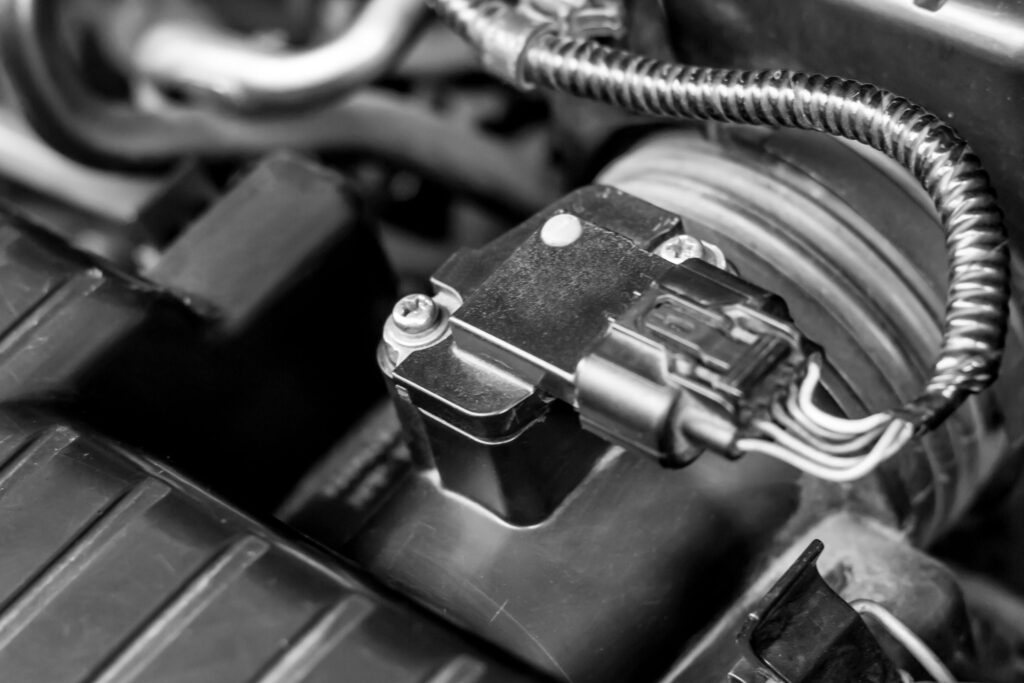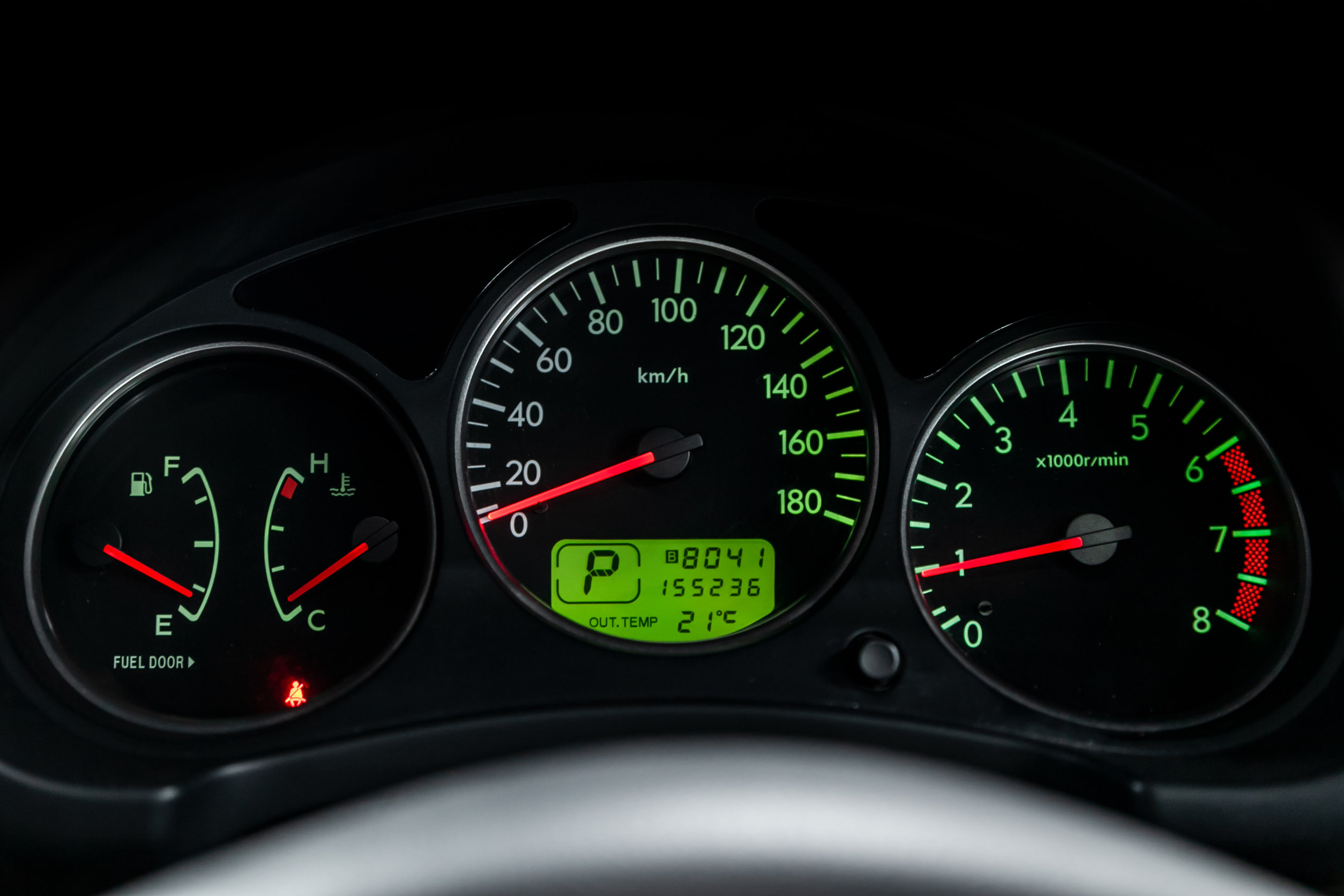Has your vehicle started to act almost like it’s haunted, revving even when you aren’t touching the gas – including while you idle and are in park?
You’re not alone!
Truth be told, your vehicle revving its engine even while you are still in park isn’t all that uncommon an issue.
Every vehicle manufacturer, every model, and every year is subject to this kind of behavior. Old antique vehicles right up to the most recent model to hit the showroom sometimes rev unsuspectingly.
All that being said, you want to make sure that you figure out exactly what’s causing this problem ASAP and that you remedy the situation just as quickly.
Why is My Car Revving in Park?
If you’ve begun to notice that the RPMs for your engine start to bounce around even while your vehicle is parked the odds are pretty good you’re dealing with failures with a couple main components in your engine bay.
Luckily, the overwhelming majority of these components can be repaired or even completely replaced without you having to spend a mountain of money.
Even better news than that, though, is that most of these components can be swapped out by any vehicle owner – even if they don’t have a whole bunch of experience working on cars under their belt (or even access to a ton of specialty tools).
Below we run through many of the most common reasons your vehicle is revving its engine even while it is securely locked in the parked position.
Throttle Position Sensor on the Fritz
Maybe the most common reason your vehicle is revving when it shouldn’t be has to do with a stuck throttle position sensor that is sending “mixed messages” to your engine.
The throttle body – and the throttle position sensor – are both responsible for allowing a tiny bit of airflow into the engine, just the right amount of air for proper combustion before sealing backup and then reopening again when your engine needs to fire.
A component like this is real up close and personal to the most explosive part of your engine. And that means it’s going to be exposed to a lot of dirt, a lot of gunk, and a lot of residue.
Over time all of that is going to build up, forming a crust on your throttle body and your throttle position sensor – and that can cause revving problems straightaway.
The easy way to fix this situation is to use a little bit of brake cleaner to get rid of all that gunk and all that crust. You’ll want to make sure that you do a good job cleaning things up, though, and give the brake cleaner plenty of time to evaporate off before you fire your vehicle up.
Air Flow Sensor That’s Gummy or Dirty
Filthy mass airflow sensors that have gummed up will also cause revving problems when your vehicle is in park.
This sensor works in tandem with your throttle control components, figuring out how much air is coming through the air and intake and going through the throttle valve into the engine.
That information gets sent directly to your onboard computer, helps to calculate the right amount of fuel to push into each combustion chamber, and optimizes the efficiency of your vehicle on-the-fly.
When this sensor gets gummy or dirty it doesn’t work as well as it should. Sometimes it starts sending wild airflow readings the engine, causing your vehicle to rev when it shouldn’t.

All you have to do here is find the MAF sensor in your vehicle (free diagnostics for all make and model cars are available online) and clean it with a detergent specifically made for that sensor.
You’ll be rocking and rolling again in no time!
Faulty O2 Sensor
Another sensor – the O2 sensor – in your vehicle can cause spontaneous revving of your engine as well.
The O2 sensor inside of your exhaust manifold (sometimes in your catalytic converter) gives you a better idea of how much air is moving from the exhaust ports in your engine. This allows your car to better determine what needs to be done to optimize air and fuel ratios for optimum efficiency.
Because this is located one of the dirtiest parts of your vehicle it’s going to get a lot of carbon deposits, it’s going to get a lot of soot, and it’s generally just going to get pretty filthy.
All of that gunk is going to compromise the efficiency of the sensor. That almost always triggers a warning light on your dash, though, letting you know that things need to either be cleaned up or the part replaced.
EGR Valve Misbehaving
The Exhaust Gas Recirculation (EGR) valve in your vehicle works to determine how much of your exhaust gases can be recirculated back through the engine to increase overall efficiencies.
It’s not uncommon for exhaust gases that get “re-burned” to build up a lot of extra carbon near the EGR valve. When that happens your onboard computer is going to get mixed signals and your engine is going to rough idle.
This is a pretty easy part to get a hold of and even easier part to swap out, though, even for really amateur mechanics. You won’t have to spend a mountain of money to fix your revving in park problem, either if this is the culprit.
Bad or Fraying Wiring
Modern vehicles rely pretty heavily on electronic systems and components for normal operations, and all of those signals need to be moved through the vehicle via the wiring system.
Wiring that has become frayed, damaged, shorted out, or otherwise compromised will delay the signals that need to be sent – or even send the wrong signals throughout your vehicle.
You’ll want to first check the wiring components and harnesses near any of your engine bay sensors, as those are going to be the most common culprits that have to be addressed.
Car Computer Malfunction
Lastly, sometimes your vehicle is dealing with a rough idle just because your onboard computer is on the fritz.
The best thing to do here is to plug a diagnostic system into your vehicle, run a full report, and figure out exactly what’s going haywire with your system.
Sometimes the fix is relatively simple and straightforward – all you have to do is disconnect your battery for short while and allow the computer to reset.
Sometimes, though, the problem is a little more advanced. In those circumstances you might need help from legitimate mechanics to get you back on the road safely.
